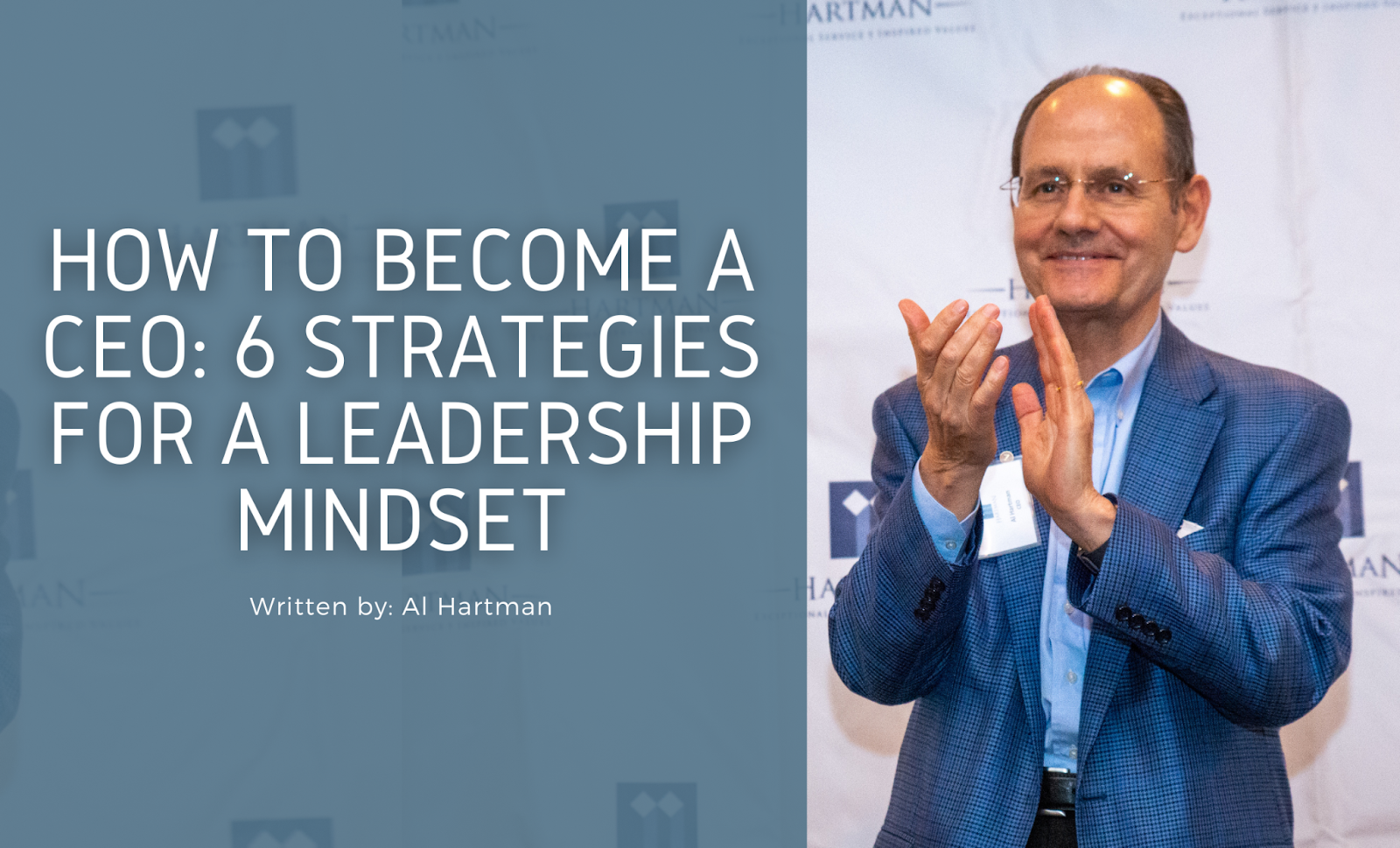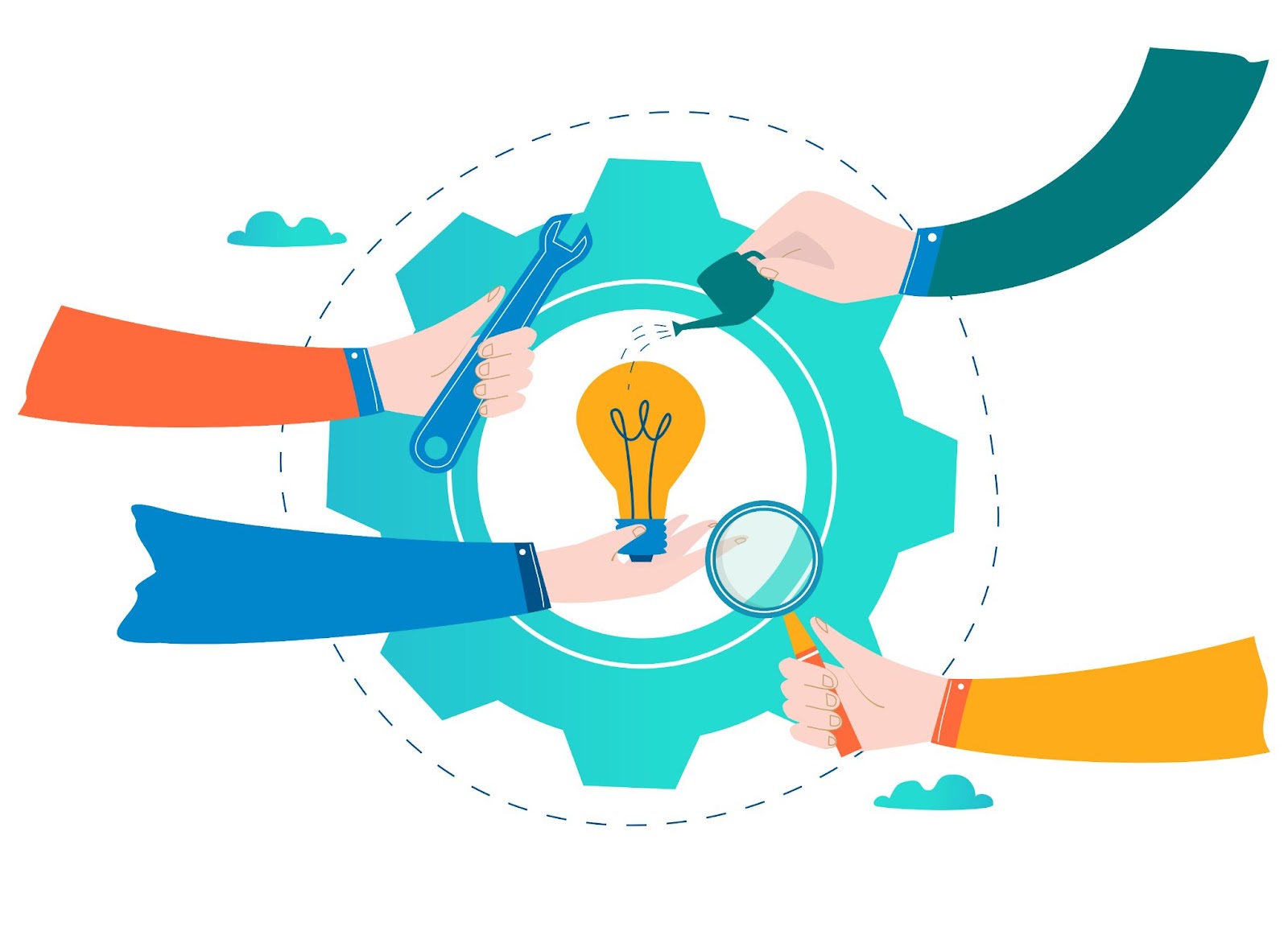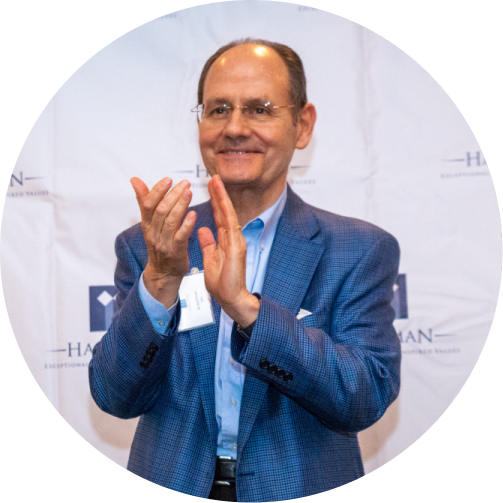If you ask 10 people how to become a CEO, you will probably get 10 different answers: get an MBA, network, work 60-hour weeks. These answers are neither right nor wrong. Yes, a well-developed professional network can get you there, but it can just as easily get you nowhere close. There are thousands of people with MBAs who aren’t CEOs, plenty of people work themselves to the bone yet never enter the C-suite.

Of course, some of these people may not want to be CEOs. But for others, your goals shift somewhere in the early stages of your career, and the job of CEO suddenly starts to come into focus as a potential career target.
I didn’t want to be a CEO when I was a child. I didn’t really know what a CEO was. But I did eventually become CEO of Hartman Income REIT Management, Inc. I can tell you how I did it, but take my story with a grain of salt. Anyone can become a CEO, but everyone’s path will look a little different. Read on to hear my take on how to become a CEO.
If you would like to read more insights from a CEO, I encourage you to read my monthly CEO letter.
What is a CEO?
What does CEO stand for? It stands for Chief Executive Officer.
What is a CEO? A CEO is the person with the highest rank within a company or organization. CEOs are the top decision-makers at their organizations, and they are tasked with overseeing the general direction of the company.
Other responsibilities of CEOs include the following:
- Setting measurable company goals and developing high-level strategies to achieve them
- Communicating with the public, shareholders and the government on behalf of the company
- Building and furthering the company’s mission and vision
- Looking for opportunities to expand the company or enter new markets
- Staying aware of competitors and risks the company may face
How Al Hartman Became a CEO
When I look back on my career so far, I don’t see a straight line from entry level to CEO. I see hills and valleys, each of which I traversed using skills and traits I acquired from the business challenges I had faced.
Your story will likely be different, but this is mine: I was the sixth of eight children, and I started working on a farm as a boy to help supplement my family’s income. My siblings went from the hard work on the farm to the hard work of higher education, but I didn’t. I opted for the hard but thrilling work of being an entrepreneur.
By the age of 27, I was selling home improvement services door to door. I was making enough money to spark some concern about sheltering it somehow, so I started reading books about investing in real estate. I started with residential properties like houses and an apartment complex. Fewer than five years later, I purchased my first commercial property: a shopping center.
That foray into real estate investing eventually became Hartman Income REIT Management, Inc., of which I am the CEO and president. I now oversee more than 60 commercial assets, around 200 employees and a business that generates over $100 million in revenue per year.
That story is mine, so I’m personally attached to it. But it leaves out details that are important to understand for those who want to know how to become a CEO. Specifically, it leaves out the leadership mindset — the thinking I had to employ as I moved up in the world. Here are some of the skills and ways of thinking I had to rely on to become a CEO, as well as some of my favorite CEO quotes to back them up.
5 CEO Quotes for a Leadership Mindset
- Learn to work well with others. “I never set out to be CEO. I always set out to be a good team member, a good colleague.” – Wells Fargo CEO John Stumpf
- Be willing to do things differently. “To build a great company, which is a CEO’s job, sometimes you have to stand up against conventional wisdom.” – Hewlett-Packard CEO Carly Fiorina
- Care about your employees. “Employees who believe that management is concerned about them as a whole person — not just an employee — are more productive, more satisfied, more fulfilled. Satisfied employees mean satisfied customers, which leads to profitability.” – Xerox CEO Anne M. Mulcahy
- Focus on the present, but always prepare for the future. “If you want a CEO role, you have to prepare for it with a vengeance.” – Campbell Soup Company CEO Denise Morrison
- Dream big, but take it one goal at a time. “I always believe that, as you start out, you should have a big dream — a big goal — but it’s also important to move step by step.” – ICICI Bank CEO Chanda Kochhar
Now, keep in mind that a few CEO quotes and my story and leadership mindset are by no means a blueprint for how to become a CEO. They are simple nuggets of inspiration and wisdom from those who have gone before you.

Responsibilities of a CEO
I have already touched on some of the high-level responsibilities of a CEO, but let’s take a closer look at some of the more specific, most important responsibilities of a CEO:
- Determine high-level corporate strategies. At Hartman, I guide the Capital Markets Group to build plans and raise capital to fund the acquisition of additional commercial real estate assets.
- Set the tone of the company culture. I believe culture is the soul of any company. That is why I have developed hiring processes that place more importance on cultural fit than anything else.
- Assess the company’s progress on its biggest goals. Every week at Hartman, all executives, the CEO included, and other staff meet to discuss progress on major company goals.
- Oversee and approve acquisitions and major sales. During the economic downturn Texas experienced in the 1980s, I was determined to keep our company profitable. To do that, I oversaw the acquisition of 24 foreclosure properties during that time. To this day, overseeing the researching, planning and approving of acquisitions is one of my most important responsibilities.
Common Traits Found in CEOs
To learn how to become a CEO, I believe you must also possess some traits that are common to CEOs around the world. And if you don’t have those traits, consider developing them.
Here are the common traits of CEOs that I believe are most likely to help you become one yourself:
- Optimism that allows you to not only believe that your company will be successful, but set a culture of positivity in your workplace
- Trustworthiness that generates loyalty and engagement among employees
- Critical thinking that allows you to see the big picture and devise a path that will drive your company forward
- Curiosity that prevents you from stagnating once you have reached the top of the corporate ladder
- Passion for what you and your company are doing to enable you to refine your mission and vision and truly bring them to life
- Compassion that helps you understand the struggles of your customers, employees, investors, vendors and any other stakeholders
When you are a CEO, you are in the ultimate position of leadership. As you might have detected, many of the above traits are really talking about your ability to lead. That’s because so much depends on that ability in a CEO. In a recent blog post about creating a truly excellent workplace, I wrote the following on this subject:
“Every member of an organization has a stake in supporting a culture of excellence in the workplace, but real, measurable accountability rests with the leadership. Not all business leaders instinctively understand the task of measuring company culture. The good news is that this process can be learned.”
I stand by that. It’s on you as the hopeful CEO to understand that you will be 100% responsible for excellence in your company. Prepare for that responsibility.
Skills You Need to Become a CEO
The good news is that you don’t need to know everything in order to become a CEO. You simply have to develop a strong set of hard and soft skills that will allow you to learn what you need to know to succeed as a CEO.
Here are some of the CEO skills you need:
- Effective communication. Open and frequent communication with both customers and employees is essential for CEOs. Employees feel more secure in their jobs, and therefore more loyal and engaged when they hear from you and trust what you’re saying. Customers always appreciate open, honest communication. It’s how you drive company loyalty.
- Open-mindedness. The only thing about change that never changes is that it’s constant. You have to be open-minded when change arises, and you have to allow yourself to see a way forward in a new environment. Although I believe working from home in many ways inhibits concentration and communication, Hartman had to accommodate this situation as the COVID-19 pandemic broke out. We did, and we made it work.
- Ethics. As the CEO of your company, you set the tone and decide the company ethics with every decision you make. For me, that has meant incorporating faith into the everyday workings of Hartman. Doing that has enabled me to refer to an ethical framework which helps inform my high-level decisions.
- Bravery. To run a company effectively, you must be fearless. You can’t let fear of the unknown or risk prevent you from making informed decisions. For example, I know many people fear the rise of automation and what it will mean for their jobs. The leadership mindset dictates that we shouldn’t fear this — we should lean into it. Explore the opportunities and take advantage of them rather than cowering in the corner and waiting for something to happen.
That is certainly not an exhaustive list of skills a CEO should have, but they are among the most important. If you read that list and feel like you have a long way to go, I have a suggestion: interview with CEOs.
What could be more informative about how to become a CEO than an interview with a CEO? Nothing, really. If you need some inspiration on this topic, I recommend the book “The Third Door,” by Alex Banayan. As a college freshman, Mr. Banayan tracked down some of the most successful people in the world, including CEOs like Bill Gates, to interview them and reverse engineer their success. This book tells his story. It’s a particularly good read, but there are plenty of CEO books that can provide important insight.

Steps to Prepare You for Your CEO Role
My progression from aspiring entrepreneur to CEO was a winding path. On that path, I had to put my skills to use, but I also had to take leaps of faith, go to great lengths to prove my worth in times of crisis and work hard.
I can’t tell you all of the things you will encounter on your path to becoming a CEO, but I can tell you one thing for certain: your path will not be linear. You will experience ups and downs, mountain peaks and deep canyons, devastating setbacks and resounding successes.
The steps to prepare for your role as CEO will involve some version of mentally preparing yourself for that kind of roller coaster. Yes, you will need to learn managerial skills, how to deal with shareholders, business ethics and similar skills. But none of those are as important as putting in the work it takes to mentally and emotionally prepare for the ups and downs of the journey.
To follow my career as CEO at Hartman, follow me on Twitter, Facebook and LinkedIn or read my monthly CEO letter.





